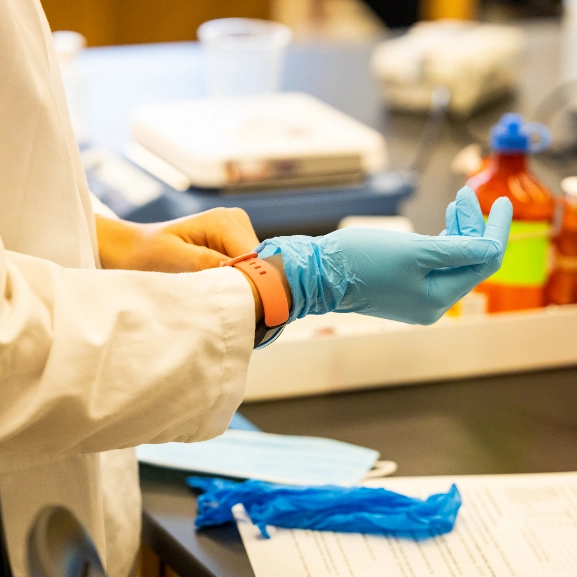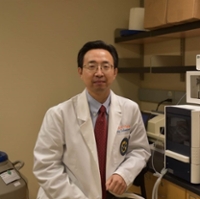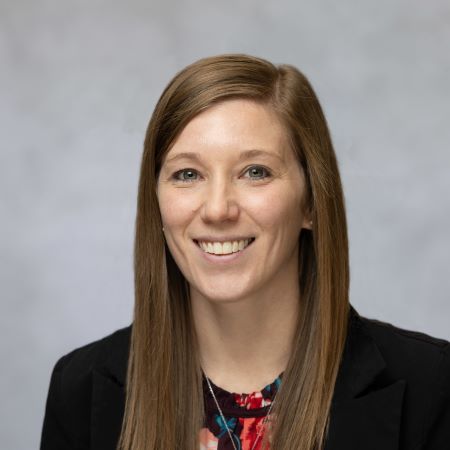Research

Outstanding Faculty and Research Opportunities
Our faculty and researchers are active in patents, publications, presentations, editorial boards, professional organizations and grant review study panels. Our state-of-the-art research attracts a diverse community of graduate students in both basic and clinical research.
Explore our full faculty roster
Office of Research and Graduate Studies
Learn about the Student Research Summit (right-click on this button to open in a new window)
Faculty Researchers

Brandi Bowers Clinical Associate Professor Email: bowersbr@umkc.edu Research areas: Underserved Patient Care; Interprofessional Partnerships; Scholarship of Teaching and Learning in Evidence-Based Medicine

Austin Campbell Clinical Associate Professor Email: campbellar@umkc.edu Research areas: Mental Health in Primary Care

Kun Cheng Curators' Distinguished Professor Email: chengkun@umkc.edu Research areas: Biotechnology; Drug Delivery

Lisa Cillessen Clinical Associate Professor Email: cillessenl@umkc.edu Research areas: Medication Safety; Point-of-Care Testing; Curricular Design

Seenae Eum Teaching Assistant Professor Email: eums@umkc.edu Research areas: Pharmacogenomics; Psychopharmacology

Simon Friedman Curators' Distinguished Professor Email: friedmans@umkc.edu Research areas: Chemical-Biology; Macromolecular Chemistry

Paul O. Gubbins Associate Dean at MSU Email: gubbinsp@umkc.edu Research areas: Health Education and Perceptions Among College Students; Scholarship of Teaching and Learning in Pharmacy ; Point-Of-Care Tests for Infectious Diseases; Pharmacokinetics and Drug Interactions Associated with Antifungal Agents

William Gutheil Professor Email: gutheilw@umkc.edu Research areas: Chemical Biology

Kendall Guthrie Clinical Associate Professor Email: guthriekd@umkc.edu Research areas: Community Pharmacy Practice Advancement; Interprofessional Education; Co-curricular Experiences

Karen Hardinger Clinical Professor / Director of Assessment Email: hardingerk@umkc.edu Research areas: Pharmacotherapy; Transplants

Chi H. Lee Professor Email: leech@umkc.edu Research areas: Implantable Polymer-Based Cardiovascular Systems for Delivery of Drugs, Proteins and Gene, Ideal Platform for 3D & 4D Printed AI-Based Biomedical Engineering

Cameron C. Lindsey Chair, Division of Pharmacy Practice and Administration/Professor Email: lindseyca@umkc.edu Research areas: Preventative Health; Community Engagement

Yifei Liu Associate Professor Email: liuyif@umkc.edu Research areas: Healthcare Services; Health Behaviors and Outcomes

Mridul Mukherji Associate Professor Email: mukherjim@umkc.edu Research areas: Enzymology; Epigenetics

Sarah Oprinovich Clinical Associate Professor Email: oprinovichs@umkc.edu Research areas: Community Pharmacy; Chronic Disease Management; editorial board for Currents in Pharmacy Teaching and Learning

Erica Ottis Clinical Professor Email: ottisej@umkc.edu Research areas: Interprofessional Education; Interprofessional Team Development

Mark Patterson Associate Professor Email: pattersonmar@umkc.edu Research areas: Implementation Science; Community Pharmacy; Health Information Technology; Artificial Intelligence

Jordan Rowe Clinical Associate Professor Email: rowejm@umkc.edu Research areas: LGBTQ Health Outcomes; Educational Outcomes; Health Outcomes of Endocrine Disorders

Jennifer Santee Clinical Associate Professor Email: santeej@umkc.edu Research areas: Diversity; Equity

Amanda Stahnke Clinical Associate Professor Email: stahnkea@umkc.edu Research areas: Diabetes Distress; Health Equity

Diana Tamer Clinical Associate Professor Email: tamerd@umkc.edu Research areas: Cancer Genomics

Bi-Botti Celestin Youan Professor Email: youandb@umkc.edu Research areas: Nanomedicine; Controlled Drug Delivery; Targeted Drug Delivery, Pharmaceutical Technology; Pharmaceutical Engineering; Pharmaceutics